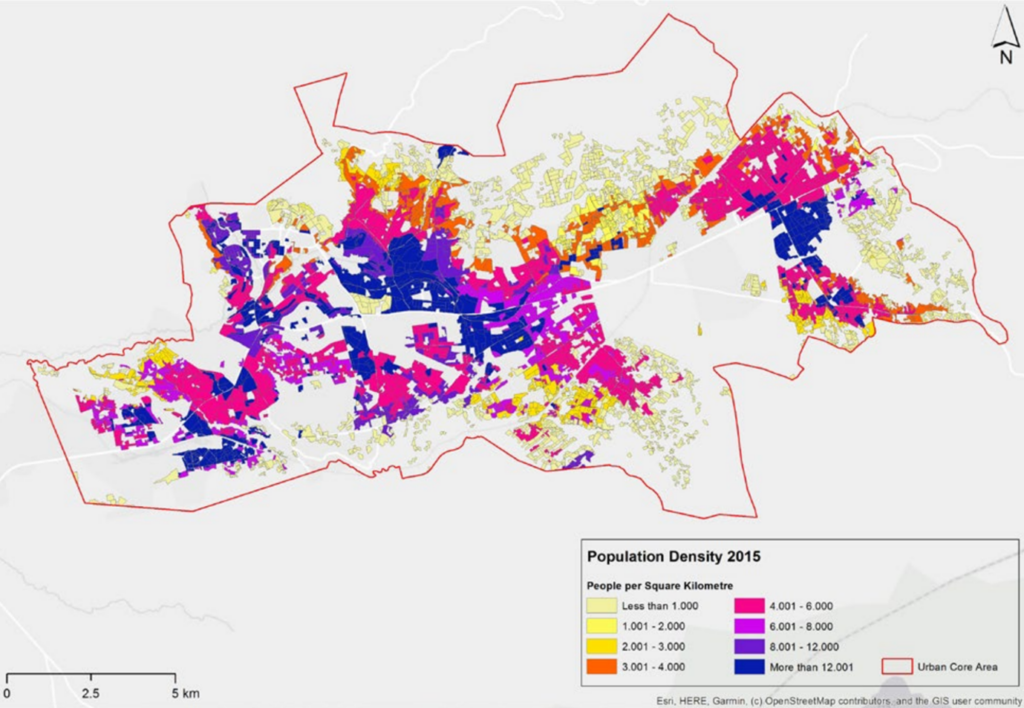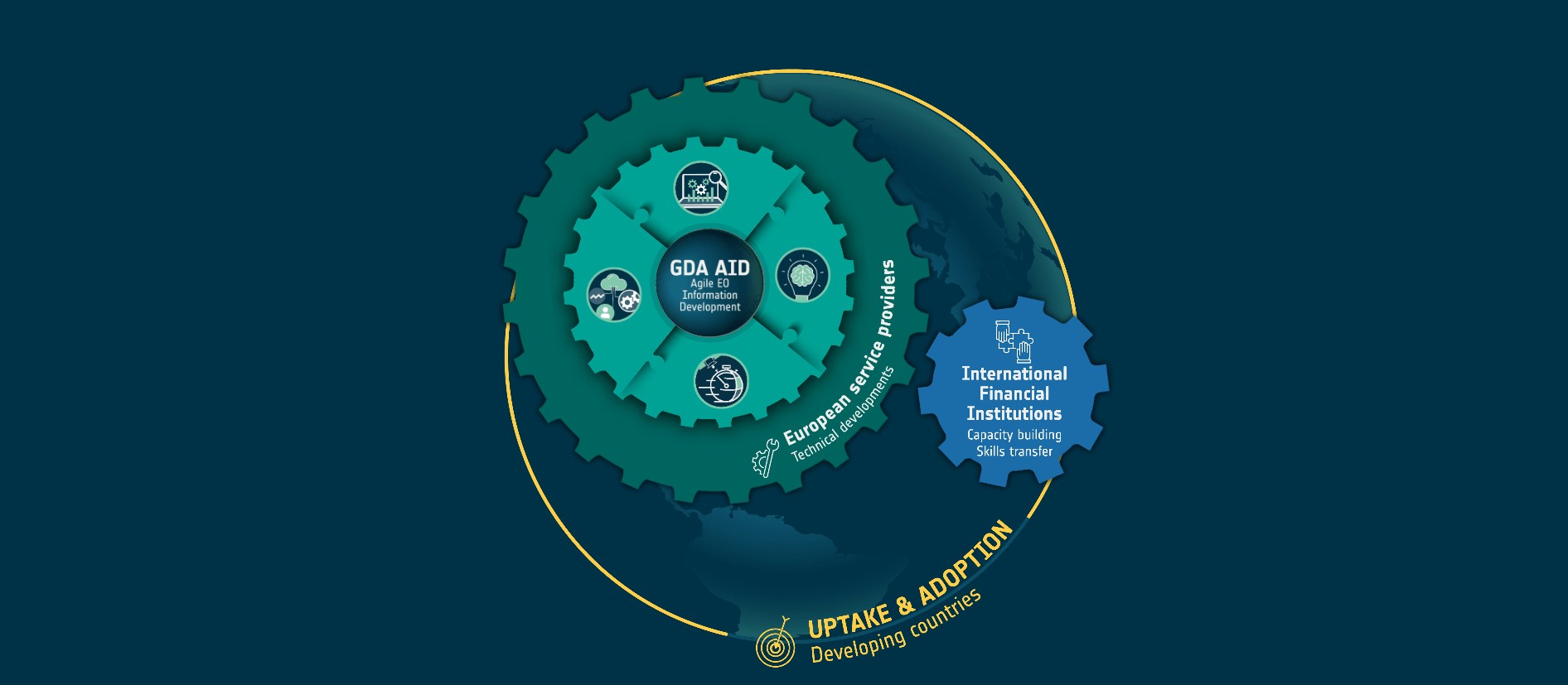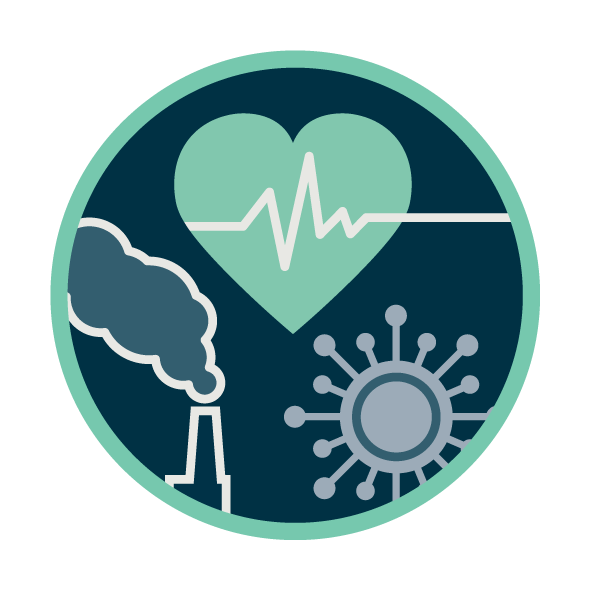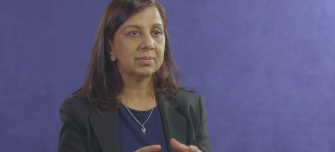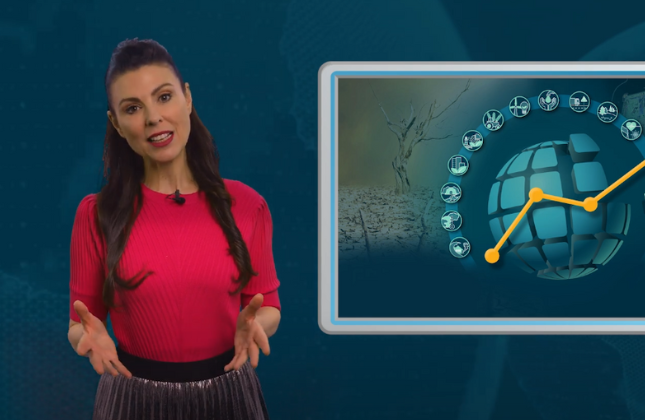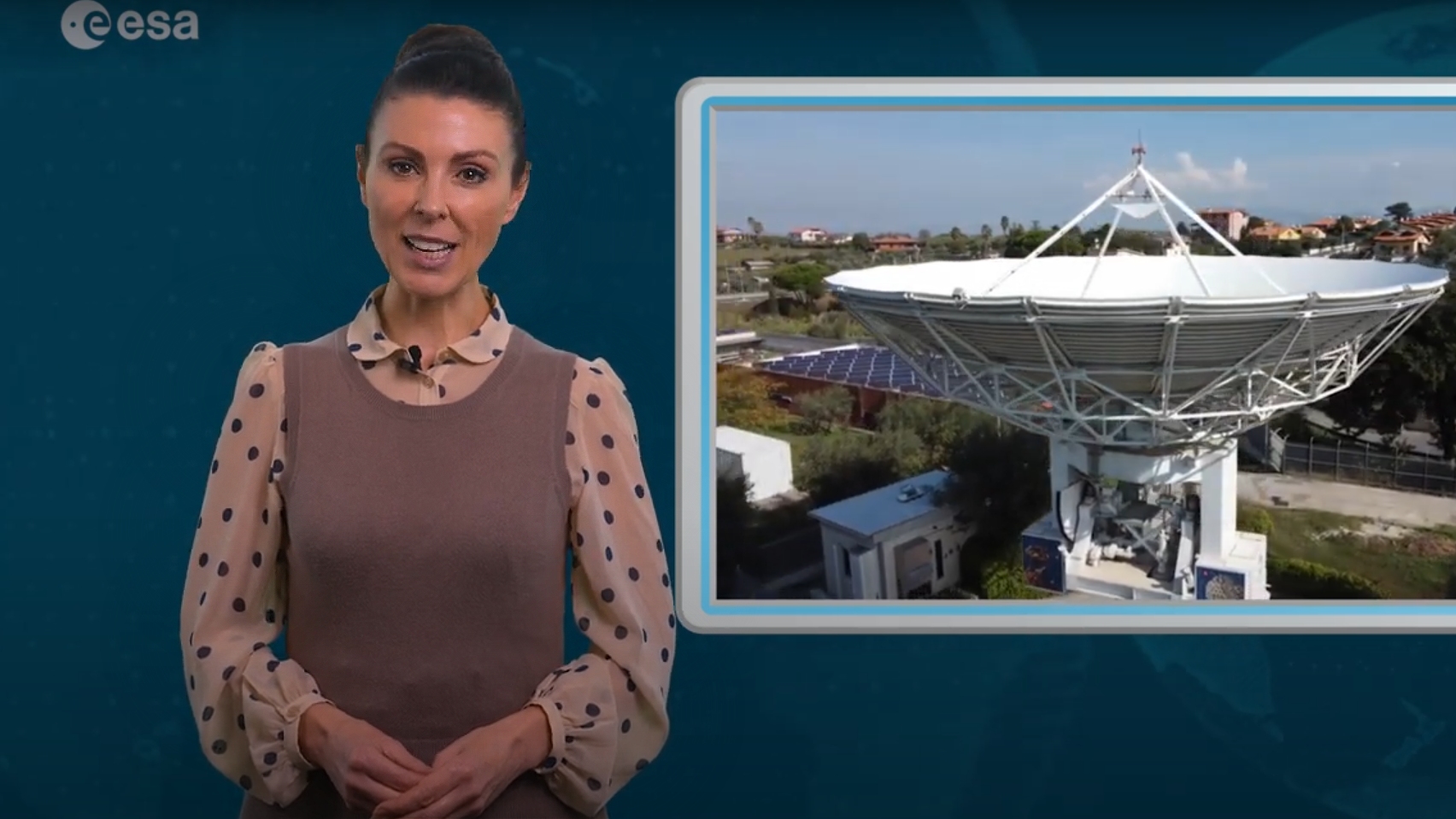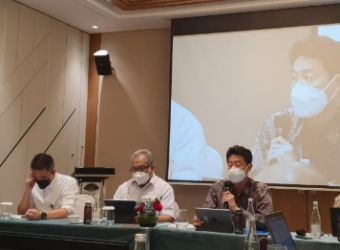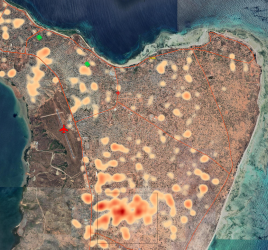ESA’s Global Development Assistance (GDA) programme is a global partnership to mainstream the use of Earth observation (EO) into development operations, in cooperation with World Bank and Asian Development Bank. It has started a new action dedicated to Urban Sustainability. Within this sector, data from EO satellites will be leveraged for sustainable urban development operations of International Financial Institutions (IFIs) and their client country governments in developing regions.
According to the World Bank, more than half the global population live in cities and over 80% of global GDP is generated in cities. The last few centuries have seen uninterrupted population growth in urban areas, with people being pushed by their desire to live in more favourable socio-economic conditions. Urbanisation is one of the major activities afflicting our planet.

Urbanisation has two sides: on the one hand it promotes socio-economic growth and innovation. Well-planned, compact cities make public spending on infrastructure and services economically viable, and facilitate generation and diffusion of knowledge. On the other hand, cities can contribute to the unsustainable use of natural resources and to the deepening of socio-economic inequalities. Poorly planned cities lead to environmental destruction, increased carbon emissions, transport congestion, poor air quality, and urban sprawl.
However, for urbanisation to become sustainable, there is a need for high quality information to support the complex decision-making processes for planning, implementation, and evaluation of urban programmes. Traditional, non-satellite sources of this information include national census and statistics, observations from teams on the ground, remote sensing from planes or drones, but these sources are often incomplete, expensive, and out-of-date. However, EO fills this gap by providing this information quickly, at high frequency, cost-effectively, and with global coverage including otherwise inaccessible areas e.g., conflict zones. As stated by Laura Tuck, World Bank former Vice President for Sustainable Development.
“Earth Observation provides the development community with an unbiased, consistent and timely perspective that can inform data-driven decision making”
GDA Urban Sustainability is led by a consortium of six European specialised EO providers that will support programmes of the World Bank and the Asian Development Bank. The consortium is led by GAF AF (Germany), and include the German Aerospace Center – DLR (Germany), TRE Altamira (Spain), Austrian Institute of Technology AIT (Austria), GISAT (Czech Republic) and Caribou Space (United Kingdom).
GDA Urban Sustainability, will address four main themes using EO Information:
- Urban Planning and Land Administration – Data on land use/land cover and urban growth underpin master planning to guide development and improve access to services for all. Accurate and fair property valuation and taxation requires reliable building footprints and heights.
- Urban Transport – Sustainable urban transport, including road, rail, airports, and ports, has a key part to play in fostering inclusive growth, expanding access to essential services, and mitigating impacts of climate change.
- Urban Environment & Health – Monitoring and minimising urban environmental issues such as habitat loss, air pollution, urban heat islands, and lack of green spaces, ensure liveability and public health.
- Urban Climate and Resilience – Extreme weather events related to climate change cause frequent flood damage, landslides and coastal erosion impacting urban areas. Resilient cities accurately map these risks, plan for them, and minimise exposure to populations and infrastructure.
